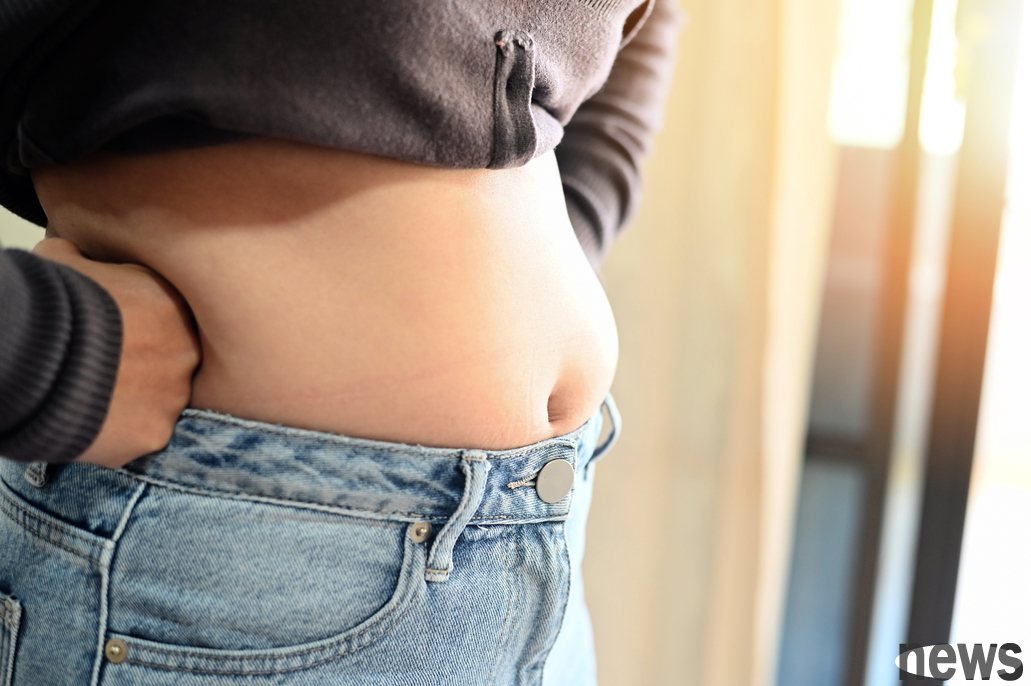Will intermittent cessation help in weight loss? The latest research reveals that the focus is not on dining mode

Reader Kathy used this website to contact me on 2025-6-27:
I would like to teach Professor Lin that this article reduces the stress and doctor has the original text link attached to the British research, but is this research reliable? I found that this article has a routine, and some are true, but if you apply the so-called research, you will be suspicious. I will pay attention to this type of information because of this difficulty. Thank you.The reader’s message said that “reducing the weight” is indeed a question. Please see my warning issued on 2025-3-11: Peanut oil is super toxic. American Honesty Association: Nonsense.
The link sent by readers opened up the strong abdominal fat published by Free Health Network on 2025-6-26? British research: Carbohydrate circulation breaks the deadlock, and the focus is: "Jie Jian, the attending physician of weight management, pointed out that a three-month random control trial was conducted in a British study and found that the average lipid of the carbon circulation group dropped by about 3.7 kg, over 2 kg of the continuous diet group, …%2 6hellip;. The face poster in this paragraph was published on 2025-6-25, and it is actually the author advertising his own new book "Carbohydrate Circulation".
The English name of this book, Carb Cycling, has actually been circulating online for more than ten years, but it is not a scientific noun. In fact, if you use it to search on PubMed, you will find 0. More importantly, it can be said that it has nothing to do with the research papers cited by the author. The research paper cited by the authors is the effect of intermittent energy and carbohydrate restrictions v. daily energy restriction on weight loss and metabolic disease risk markers in overweight women (the impact of intermittent energy and carbohydrate restrictions on weight loss and metabolic disease risk markers in overweight women). The first author of this article and the communication author is Michelle Harvie.
Although the vocabulary of this article contains the vocabulary Intermittent energy and carbohydrate restrictions, the research papers published after Michelle Harvie no longer use this vocabulary, but instead use Intermittent energy restrictions.
is a term that means, Intermittent energy restriction is to intermittently limit "energy" (i.e. "Calorie"), and the energy sources in food include fat, protein, and carbohydrates. However, Carb Cycling only intermittently limits "carbohydrates".
Michelle Harvie published the Potential Benefits and Harms of Intermittent Energy Restriction and Intermittent Fasting Amongst Obese, Overweight and Normal Weight Subjects-A Narrative Review of Human and Animal Evidence in 2017. — — a descriptive summary based on human and animal evidence). Its two more important conclusions are:
1. Six short-term (less than 6 months) small-scale studies of overweight or obese people have shown that intermittent energy limitation and continuous energy limitation have the same effect on weight loss.2. For overweight or obese people, the long-term benefits or harm of intermittent energy limitation are not known.
means that in the short term (less than 6 months), energy limitation is the real cause of weight loss, not circulation (break). In the long run, energy limitations, no matter whether they are circulating or not, they don’t know whether they can reduce weight.
Michelle Harvie's latest article is The impact of intermittent energy restriction on women’s health (the impact of intermittent energy limitation on women's health) published on 2025-2-11. She reiterated that energy limitation is the real reason for weight loss, not circulation (breaking).
Okay, let's talk about Carb Cycling now. Since there is no research on Carb Cycling in the scientific literature, I can only cite more trustworthy sources.
Cliffland Clinic published What Is Carb Cycling? (What is a carb cycle?). Its subtitle is: This diet plan is very suitable for high-strength activities (but not for weight loss).
WebMD published Understanding Carb Cycling: A Comprehensive Overview on 2025-2-16. Important: Carbohydrate circulation can help endurance athletes maintain adequate energy during high-strength training, such as marathons. It may help them burn fat, strengthen muscle and improve endurance. However, if high-strength training is not performed on high-carb intake days, it is unlikely to lose weight.
USA Today published on 2023-6-18 What is carb cycling? How to do it right, and who should avoid the diet (What is carb cycling? How to do it right, and who should avoid the diet (What is carb cycling?) Key points: Both registered nutritionists, Jen Messer and Camilla Madziar, said that this type of research is not serious. Currently, there is limited scientific research on the benefits and long-term effects of carbohydrate circulation. Endurance athletes and bodybuilding athletes use carb circulation as a short-term diet plan that may help improve body composition and improve exercise performance in high-strength training and competitions, but more research is needed to verify the safety and effectiveness of carb circulation.
From the above information, three conclusions can be obtained:
1. The book "Carbohydrate Circulation" can be said to be irrelevant to the 2013 research paper cited by the author.2. The effect of weight loss comes from energy limitations, not circulation (breaking).
3. Carbohydrate circulation is a training plan for sports players, but it is not suitable for weight loss plans for ordinary people.
Finally, I provide another latest and most powerful evidence, that is, a large-scale comprehensive analysis paper published more than one month ago (2025-5-14) Comparison of Different Intermittent Fasting Patterns or Different Extents of Calorie Restriction for Weight Loss and Metabolic Improvement in Adults: A Systematic Review and Network Meta-Analysis of Randomized Controlled Trials (Comparison of weight loss and relief improvement in adults between different intervals or different degrees of heat limitation: Systematic review and network synthesis analysis of random control trials).
This study covers all types of fertilizer reduction programs as of 2022, and includes 167 random clinical trials and 11,998 participants. The conclusion is that the weight reduction effect mainly depends on the degree of energy limitation and has nothing to do with dining patterns.
So, do you still believe in what breaks, what cycles, what 618, what 3388?
Original text: "Carbohydrate Circulation" to reduce weight?Responsible editor: Gu Zihuan




